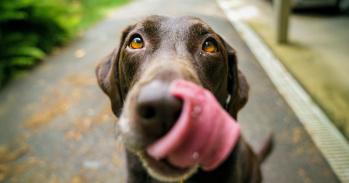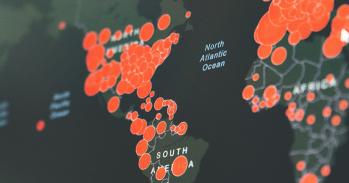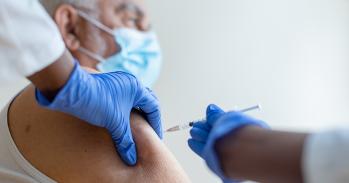
A survey of over 2,000 British adults finds that trust in genetics is high and went up significantly during the pandemic. It also finds that there is a hunger for more coverage of genetics.
A survey of over 2,000 British adults finds that trust in genetics is high and went up significantly during the pandemic. It also finds that there is a hunger for more coverage of genetics.
These results really challenge us to double our efforts. We need to rise to the new opportunity and the challenge created by the outcomes of this survey.
Anne Ferguson-Smith
The pandemic has gone hand-in-hand with a much-increased public profile of science − genetics in particular. Be it the prominence of PCR testing or the development of vaccines, genetics has been in the spotlight in an unprecedented way. Given this, researchers from the Universities of Bath, Cambridge, Oxford, UCL, and Aberdeen wanted to know what the public felt about genetics and whether this new exposure of the science had made a difference.
The Genetics Society funded and commissioned a survey of over 2,000 randomly selected British adults through a public polling company Kantar Public. The researchers found that as a baseline most people were trusting of genetic technologies before the pandemic. Nearly half (45%) reported they trusted it to work for the societal good, 37% were neutral on this question, while 18% said they did not, and only very few (1-2%) were strongly distrusting.
When asked if their trust in genetics had gone up through the pandemic, four times more people said their trust had increased than those who reported that it had gone down. Trust in science more generally had strongly gone up with a third of people saying it had increased.
The results suggest that not only has trust in science gone up, but people want to hear more about it. Less than 10% thought that there was too much coverage of science in the media, while 44% reported that they want to hear more about it.
Anne Ferguson-Smith, Pro-Vice-Chancellor for Research and International Partnerships and Arthur Balfour Professor of Genetics at Cambridge University and President of the Genetics Society said: “These results really challenge us to double our efforts. We need to rise to the new opportunity and the challenge created by the outcomes of this survey”.
Co-lead Professor Laurence Hurst of the Milner Centre for Evolution at the University of Bath said: “this is potentially important to know – scientists have a tendency to stick in their labs, but it looks like, for the most part, the public not only trust us but that this trust has gone up somewhat and many want to hear more from us about our work.”
Professor Jonathan Pettitt, co-lead from the University of Aberdeen said: “It is hard to see any upsides to the pandemic but perhaps this is one? We never knew that so many people wanted to hear more from scientists.”
Co-lead Professor Alison Woollard of the Department of Biochemistry at the University of Oxford said: “We think we have established the limits of science communication. Despite all the talk of PCR over the last many months, we found that 30% hadn’t heard the term or knew it was a tool for testing for the virus. It is hard to see how any science can have more exposure than PCR has had. We need to be realistic and understand that, no matter what, we will never reach everyone. For informing people about things like vaccines this is important to know.”
Dr Adam Rutherford from the UCL department of Genetics, Evolution and Environment said: “We often hear that trust in science is at a low point, but what we found is that most people do trust the science of genetics as the basis of how we address global issues such as pandemics. However, scientists should not be complacent: we also found that the exposure of genetics during the pandemic made those suspicious of science more distrusting, despite the evidence. In a world where these voices can easily be amplified, we must be vigilant that our processes, methodologies and results are clearly and transparently communicated.”
Dr Cristina Fonseca, project coordinator for the Genetics Society, said “having a representative random survey is really vital and allows us insight into the true diversity of opinions.”
This article was adapted from a press release from the Genetics Society.

The text in this work is licensed under a Creative Commons Attribution 4.0 International License. Images, including our videos, are Copyright ©University of Cambridge and licensors/contributors as identified. All rights reserved. We make our image and video content available in a number of ways – as here, on our main website under its Terms and conditions, and on a range of channels including social media that permit your use and sharing of our content under their respective Terms.




